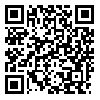BibTeX | RIS | EndNote | Medlars | ProCite | Reference Manager | RefWorks
Send citation to:
URL: http://rjms.iums.ac.ir/article-1-3007-en.html
Background: Breast feeding rate in infants is decreasing from 70% at hospital discharge to 32.2% at 6 months. Health professionals have crucial roles in increasing nursing mothers’ self confidence, breastfeeding knowledge and subsequent better patients outcome. The aim of this study was the assessment of participants’ attitude, knowledge and practice after a breastfeeding workshop.
Methods : The workshop was held for 3 days, regarding the most important aspects of breastfeeding consulting, problems and challenges. In training part of the workshop a breastfeeding consultant managed the practical exercises with nursing mothers and infants. This practical approach was chosen to promote the participants' role as breastfeeding consultant. A questionnaire was used to evaluate participants' knowledge, attitude and practice before and after the workshop.
Results: Forty participants registered for workshop, 38 of them were female, and the average age was 37.8. Twenty six (57.5%) reported having one or more children from which 19 (82.6%) breastfed successfully. The workshop increased participants’ attitude, knowledge, and practice scores significantly (paired T Test p< 0.05). There was a significant association between attitude and background data including having children, personal or spousal breastfeeding experience and age. Having children was a significant factor in participants’ knowledge increase and the only significant difference was found between age and participants’ practice (Pearson correlation and One- way Anova Test were applied).
Conclusions: Health in-service training program improved participant’s attitude, knowledge and practice scores.





